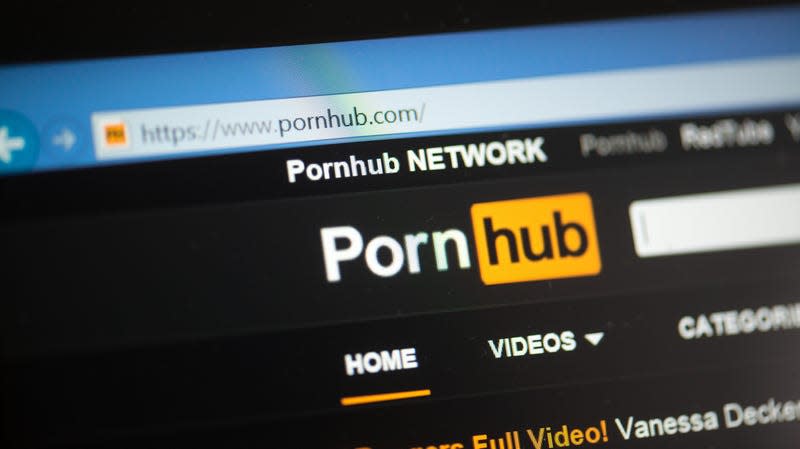Florida May Just Be Too Valuable for PornHub to Pull Out

A slew of conservative states have recently passed age verification laws for websites and, in response, Pornhub has gotten in the habit of shutting off service in those states rather than acquiescing to local regulations. The company has already shut off service in six states, including Texas, Utah, Mississippi, Arkansas, North Carolina, and Virginia. Florida could be next. Or maybe not.
The Sunshine State recently passed HB 3, a law that prohibits children aged 14 or younger from using social media without parental consent. The law also stipulates that “pornographic or sexually explicit websites” will need to “use age verification to prevent minors from accessing sites that are inappropriate for children.” Pornhub and its parent company, Aylo, have repeatedly criticized these kinds of requirements, claiming that they are ineffective and do not respect users’ privacy. (Whether Pornhub really cares about user privacy is a hanging question; last year the platform was accused of breaking the GDPR—the landmark European privacy law—by illegally harvesting user data).
Will Pornhub pull out of Florida? It would make sense to think so, but the digital smut platform has given equivocating statements about whether it plans to shut down service in the state.
After Ars Technica ran a story on Wednesday claiming that Pornhub is prepared to “block” Florida if the law “takes effect,” Gizmodo reached out to Pornhub for confirmation that this was true. A Pornhub spokesperson seemed confused by the Ars story’s claims of a potential ban. When pressed on whether the company is preparing to block the Sunshine State, the spokesperson said: “To clarify, we have not stated whether we will or will not block access in Florida. We hope elected officials will choose to implement a form of age verification that actually makes the internet safer and preserves user privacy, as opposed to haphazard and ineffective implementation that, in practice, does the opposite of its stated goals.”
Pornhub/Aylo’s argument is basically that if porn viewers don’t get porn from them, they’ll be compelled to go to sketchier, darker parts of the web to get it.
“These people did not stop looking for porn,” Aylo’s spokesperson told Ars Technica. “They just migrated to darker corners of the Internet that don’t ask users to verify age, that don’t follow the law, that don’t take user safety seriously, and that often don’t even moderate content. In practice, the laws have just made the Internet more dangerous for adults and children.”
“Unfortunately, the way Florida and many jurisdictions worldwide have chosen to implement age verification is ineffective, haphazard, and dangerous,” the Aylo spokesperson continued. “Any regulations that require hundreds of thousands of adult sites and all social media to collect significant amounts of highly sensitive personal information is violating the privacy rights of law-abiding citizens and putting user safety in jeopardy.”
The company stresses that it is not in favor of minors accessing pornographic content: “To be clear, we agree on the goal of keeping minors away from such content. We do not want minors to have access to adult entertainment content designed for adults.”
In general, Pornhub’s service blocking efforts—which block all IP addresses in specific geographical areas—don’t mean much. A dedicated porn addict could download a VPN and log onto the porn site via an IP address from a different region.
Aylo, which recently changed its name (it was formerly called MindGeek) has been beset by legal troubles in recent years. It was sued in 2021 and accused of hosting child abuse material. It was also accused of child sex trafficking. It was also previously sued for allegedly hosting non-consensual porn, as part of the GirlsDoPorn debacle.

